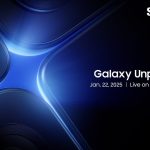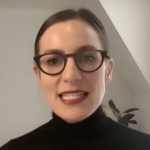Mandel Ngan/AFP via Getty Images; Blue Origin
- Jeff Bezos is set to launch to the edge of space aboard Blue Origin’s New Shepard rocket on Tuesday.
- Bezos and his fellow passengers will experience weightlessness for about three minutes.
- This spaceflight will be unlike any prior launch, with no pilot and probably no spacesuits.
- Sign up for the 10 Things in Tech daily newsletter.
Jeff Bezos is preparing to rocket to the edge of space on Tuesday, but he won’t be there for very long. With Earth shining outside the windows, Bezos will float around the cabin of his company’s New Shepard spaceship for just three minutes before he has to strap in to his seat again and fall back to the ground.
Blue Origin, the rocket company that Bezos founded in 2000, plans to use this launch system to carry tourists up to the edge of space. New Shepard’s goal is simple: Give paying customers the ride of their lives. Passengers will get a few minutes of stunning views out of the largest windows of any spaceship in the world.
Blue Origin
This is one of the first launch systems designed for that purpose, and Bezos – the richest person on Earth – will be among the first people to fly on it. His brother, Mark, is set to accompany him, along with an 82-year-old aviator named Wally Funk, and an 18-year-old high school graduate named Oliver Daemen. Funk and Daemen will be the oldest and youngest people, respectively, to ever reach space.
Combined, these factors make this flight unlike any other before it.
“I am so excited. I can’t wait to see what it’s going to be like,” Bezos told Today on Monday. “People who say they go into space, that they come back changed. Astronauts always talk about that – whether it’s the thin limit of the Earth’s atmosphere or seeing how fragile the planet is, that it’s just one planet. So I can’t wait to see what it’s going to do to me.”
Bezos’s dream-realizing flight will have no pilot, as the process is automated – and probably no spacesuits, either. Here’s what to expect.
3 minutes of weightlessness
On launch day Bezos, Bezos, Funk, and Daemen will climb into the round, spacious cabin of the New Shepard and strap in. If all goes according to plan, the rocket will then fire its engines, spewing flame and smoke across the plains of West Texas, in order to heave itself off the launchpad and into the skies.
As New Shepard screams through the atmosphere, the force of its climb and the pull of Earth’s gravity will pin the Bezos brothers and their guests into their reclining seats.
After just three minutes, they will suddenly feel weightless. They’ll have another three minutes to unbuckle and float around the cabin, drifting from one window to another. Those windows, which make up one-third of the capsule’s surface, will show the passengers the curve of Earth on one side of the spaceship and the blackness of space on the other.
Blue Origin
Astronauts have a term for the feeling of awe this view of Earth can inspire: “the overview effect.”
“When we look down at the Earth from space, we see this amazing, indescribably beautiful planet. It looks like a living, breathing organism. But it also, at the same time, looks extremely fragile,” Ron Garan, an astronaut who spent 177 days in space, explained in a 2013 documentary film, “Overview.”
He added: “Anybody else who’s ever gone to space says the same thing because it really is striking, and it’s really sobering to see this paper-thin layer and to realize that that little paper-thin layer is all that protects every living thing on Earth from death, basically.”
Briefly, for just a minute or two, the New Shepard spaceship should clear the Kármán line – an imaginary boundary 62 miles (100 kilometers) above sea level, where space begins.
Then as gravity takes hold again and the spaceship begins to fall back to Earth, Bezos and his fellow passengers will strap in for a high-speed plunge through the atmosphere. Then the capsule should deploy three parachutes – likely giving the passengers a significant jerk as the chutes balloon into the air to brake the spaceship’s fall.
Blue Origin
After that, the parachutes should carry the capsule to a gentle landing in the Texas desert, where a recovery crew will be waiting to retrieve the Bezoses and their companions.
Meanwhile, the rocket booster will fall back to Earth separately, fire its engines to slow itself to about 5 mph, and self-land on a concrete pad, to be restored and fly again another day.
The whole journey will last about 11 minutes. That’s because New Shepard is a suborbital rocket. It’s too small, and its engines don’t have enough thrust, to push itself into orbit. So any tourists riding it, including Bezos, will get to peek just above the edge of space.
Virgin Galactic, a competing spaceflight company founded by billionaire Richard Branson, has flown people on similar suborbital flights before. Branson himself just launched aboard the company’s plane-like vehicle on July 11. But Virgin Galactic’s missions require pilots to fly and land their space planes. The entire New Shepard flight is automated, so no pilots or professional astronauts will be onboard.
No spacesuits, either
Blue Origin
Blue Origin plans for New Shepard passengers to wear only a jumpsuit – not the pressurized spacesuits and helmets that professional astronauts wear when they launch or land.
NASA started requiring that astronauts wear pressurizes suits after the Challenger disaster in 1986, when the Space Shuttle broke apart during launch, killing all seven crew members.
Spacesuits probably would not have saved the people aboard Challenger, but they could save lives if a space capsule experiences a cabin leak but remains intact.
New Shepard has flown successfully 15 times. On three occasions, Blue Origin has tested an emergency-escape system that should jettison the capsule and its passengers away from a failing rocket.
This story has been updated with new information. It was originally published on June 9, 2021.
Powered by WPeMatico






